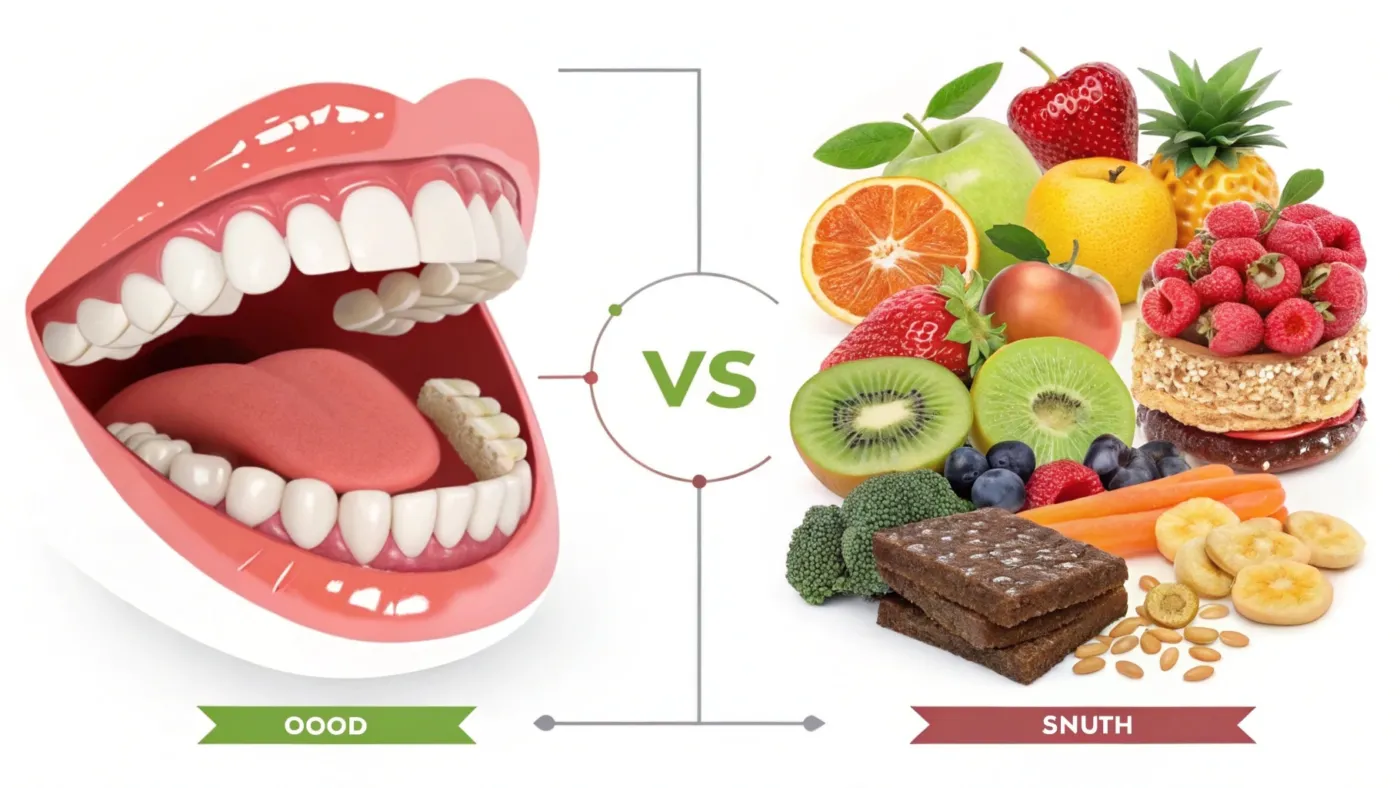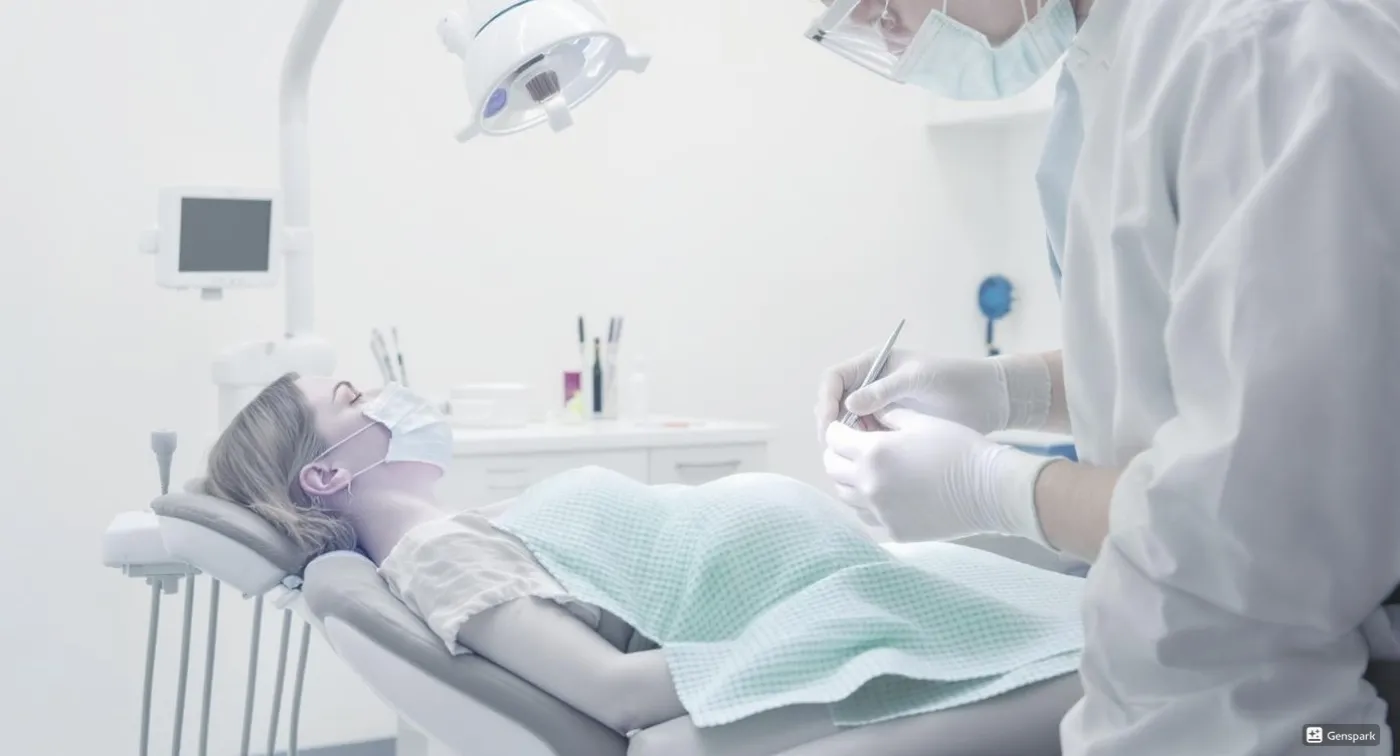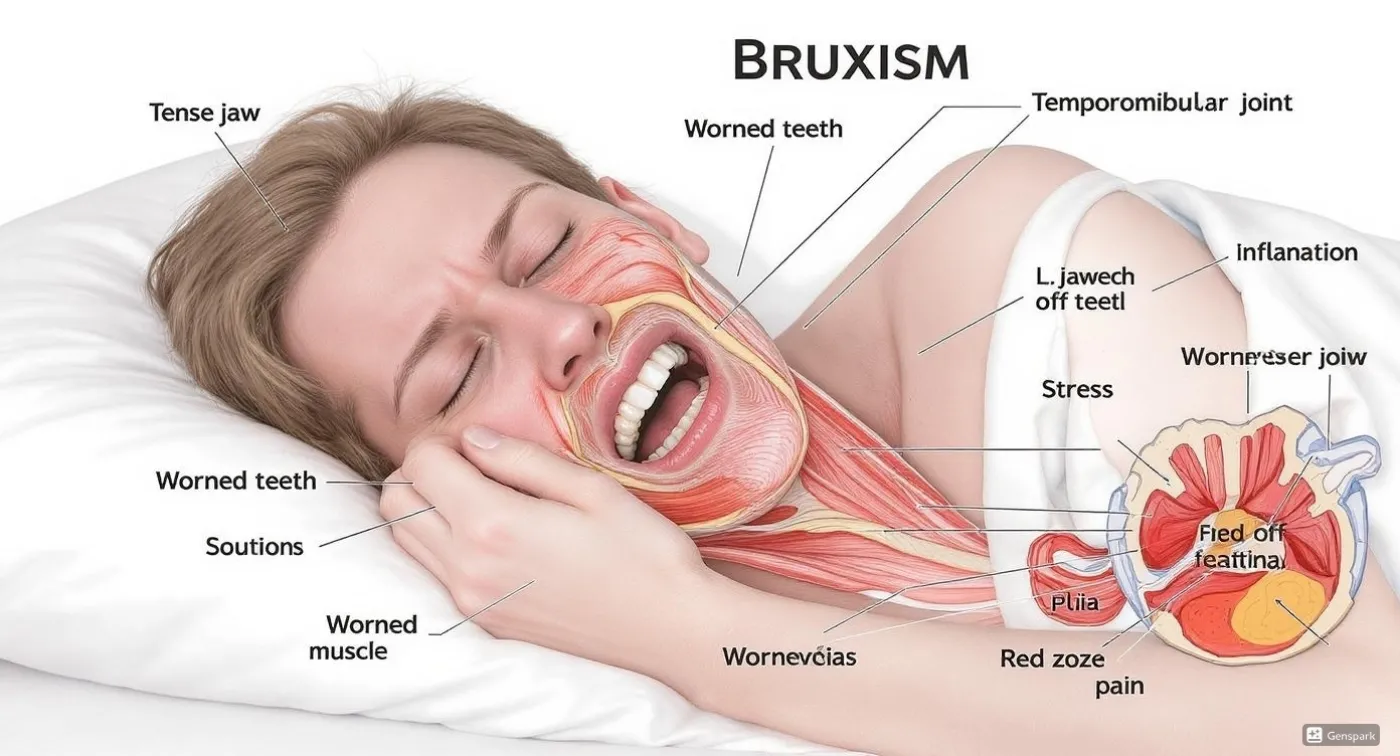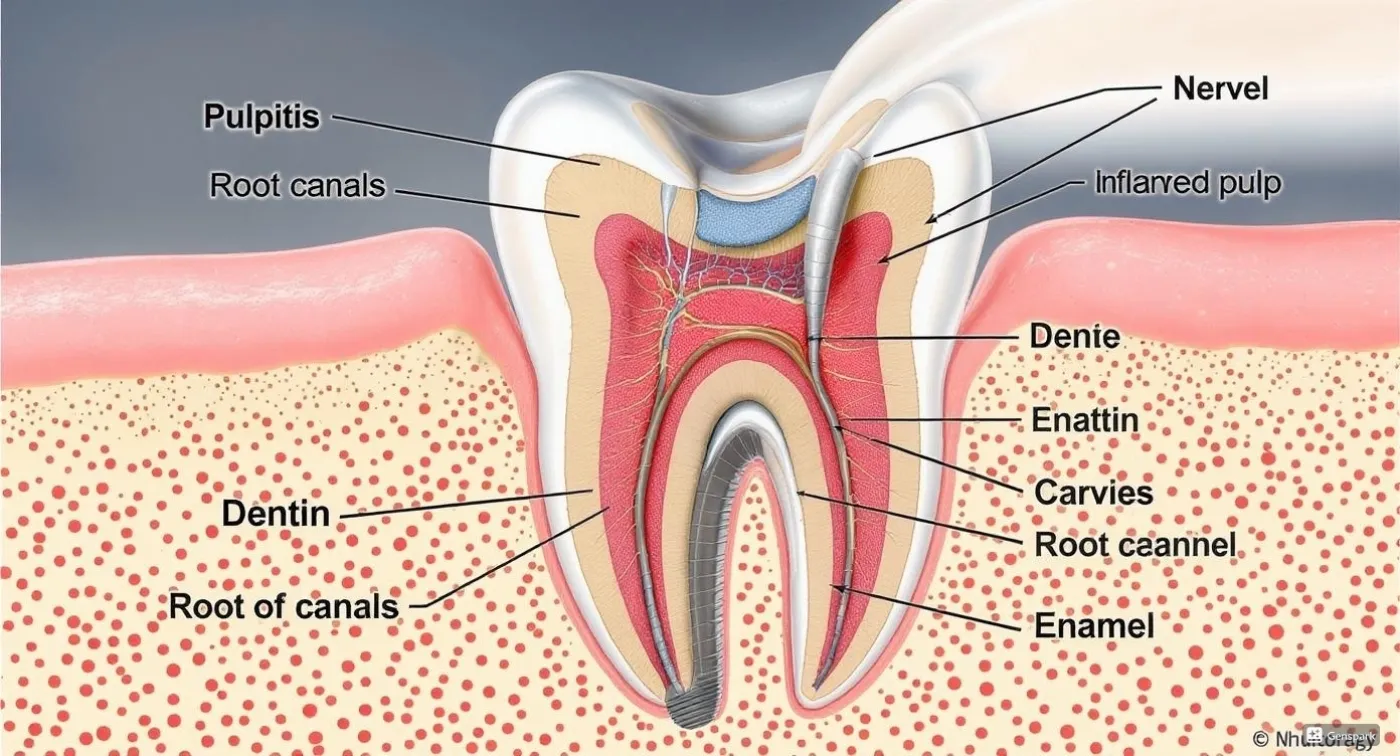Dental health starts with what we put on our plate. Calcium, phosphorus, and vitamin D help build strong enamel, while antioxidants protect the gums from inflammation. Even the best oral hygiene can't undo the damage caused by excessive sugar and acid intake. A balanced diet is the foundation of preventing dental problems.

How Does Nutrition Affect Dental Health: Foods to Add and Avoid?
What we eat every day directly affects our overall health - including the health of our teeth. Nutrition is a powerful tool in preventing dental issues. A balanced diet helps strengthen tooth enamel, maintain healthy gums, and even reduce the risk of cavities. But which foods harm your teeth, and which ones help? How can you improve your dental health with simple changes to your daily menu?
It’s important to know which foods truly benefit your oral health and which are best avoided. Here’s how your diet can become an ally in taking care of your smile.
The Basics of How Nutrition Affects Your Teeth
For your teeth to stay healthy, your body needs a steady supply of essential nutrients. Tooth enamel is the hardest tissue in the human body, but even it requires support. Its breakdown often begins with a prolonged deficiency of vital micronutrients. Several nutrients play a key role in the formation and maintenance of strong teeth, including:
- Calcium – the primary building block of enamel;
- Phosphorus – works alongside calcium to maintain enamel strength;
- Vitamin D – regulates calcium absorption in the intestines, as calcium alone isn’t efficiently absorbed without it.
A lack of even one of these elements can gradually weaken your teeth. But it’s not just about minerals. Nutrition also affects saliva production, which is your mouth’s natural defense system. Saliva neutralises acids, washes away food particles, and contains enzymes that help suppress harmful bacteria.
To stimulate saliva flow, your daily menu should include crunchy fruits and vegetables, which also mechanically clean the teeth by encouraging chewing.
Dentists recommend maintaining a balanced approach to food. For example, some acidic products can temporarily soften enamel, but they also stimulate saliva production — a benefit. That’s why healthy eating means making mindful, informed choices about what and how you eat.
Tooth-Friendly Foods
Healthy teeth begin with what you put on your plate each day. Foods rich in vitamins, minerals, and antioxidants not only help strengthen enamel but also support gum health, balance the oral pH level, and reduce the risk of cavities. To maintain good dental health, it’s important to include the following beneficial foods for your teeth:
- Crunchy Fruits and Vegetables. Apples, carrots, broccoli, celery, and onions play a double role. These foods stimulate saliva production — your natural defense against tooth decay — and mechanically clean the teeth by helping remove plaque from the enamel.
- Dairy Products. Milk, yogurt, and hard cheese are essential sources of calcium and phosphorus. These nutrients are easily absorbed and vital for building and maintaining strong enamel. Fermented dairy products and hard cheeses are especially beneficial, as they contain both calcium and phosphorus in a bioavailable form.
- Leafy Green Vegetables. Spinach, kale, and lettuce are rich not only in calcium but also in B vitamins, especially folates. These support blood vessels, improve gum circulation, and help prevent gum bleeding.
- Nuts and Seeds. Almonds, walnuts, sunflower and pumpkin seeds are mineral powerhouses. They’re packed with calcium, phosphorus, magnesium, and healthy fats. These nutrients aid tissue regeneration, strengthen enamel, and can help soothe gum inflammation.
- Fish and Seafood. Mackerel, herring, salmon, sardines, and shrimp are excellent sources of phosphorus and vitamin D. Regular consumption of fatty fish has been shown to improve gum health and promote better calcium absorption.
- Green and Black Tea. Both contain polyphenols — natural antioxidants that inhibit the growth of harmful bacteria responsible for cavities and bad breath. Tea can help keep your breath fresh, but excessive consumption may reduce calcium levels in the body, so moderation is key.
Even the healthiest foods should be consumed in moderation and with balance. Good oral hygiene remains essential. Without it, plaque will accumulate on your teeth, creating a breeding ground for harmful bacteria. Their byproducts damage the enamel, eventually leading to tooth decay.
Harmful Foods for Teeth
Some foods can gradually erode tooth enamel, increase the risk of cavities, cause sensitivity, or stain your teeth. These include:
- Sweets and Candy. These are one of the main threats to dental health. High in sugar, they create the perfect environment for harmful bacteria and often stick to the surface of the teeth. As bacteria multiply, they produce acids that damage the enamel. Sticky candies like caramel, toffees, jelly sweets, and lollipops are especially harmful.
- Acidic Foods (in excess). Citrus fruits, pineapple, tomatoes, and vinegar are high in acids that can soften enamel and make teeth more sensitive. Frequently drinking orange or lemon juice without a straw, for example, may lead to enamel erosion. People with existing sensitivity should limit acidic foods.
- Carbonated Drinks. Soft drinks combine two dangerous elements: acid and sugar. This combo not only fuels cavity formation but also causes tooth discoloration and disrupts enamel’s mineral balance.
- Starchy Snacks. Chips, crackers, cookies, and processed snacks tend to get stuck between the teeth, quickly break down into simple sugars, and feed bacteria. This leads to plaque buildup, which eventually hardens into tartar if not removed.
- Coffee. It increases acidity in the mouth, which can harm enamel. If you can’t imagine your morning without coffee, it’s best to drink it without sugar and rinse your mouth with water afterward.
Harmful and beneficial foods affect not only your teeth but also your overall well-being. Minimising the harmful foods in your diet, both for yourself and your children, is a step toward better overall health.
How to Strengthen Gums and Improve Tooth Health
It’s important to care not only for enamel but also for your gum health. If your gums are weakened, inflamed, or bleeding, this can lead to serious problems - including tooth loss.
Vitamin C plays a crucial role in strengthening gum tissue. A deficiency can cause capillaries to become fragile, leading to bleeding. Add foods like citrus fruits (in moderation), kiwi, broccoli, and spinach to your diet. The vitamin C in these foods helps regenerate tissues and reduce inflammation.
Maintaining oral hygiene habits around food is also essential. If it’s difficult to give up sweets entirely, rinse your mouth with water after eating them. Firm, fibrous plant foods not only benefit your teeth but also gently massage your gums, improving blood flow to the soft tissues.
General Tips for Healthy Teeth
To maintain healthy teeth, it’s not enough to just know which foods are good or bad. A balanced diet must be paired with proper oral care. This means: brushing your teeth twice a day, using dental floss and mouthwash, rinsing your mouth with clean water after meals, cleaning your tongue - it also collects bacteria
The foundation of dental disease prevention is regular visits to the dentist. High-quality consultations, hygiene cleanings, and professional treatment are available at Gallant Dental Clinic in Horodyshche. Modern equipment and years of experience help keep patients’ teeth healthy and their smiles bright.
Conclusion
A healthy diet is one of the most important factors in maintaining oral health. Vitamins, minerals, and healthy fats help strengthen enamel, support gums, and reduce the risk of cavities. That’s why it’s worth paying attention to your daily nutrition. However, diet alone is not enough. It must go hand in hand with good hygiene habits and regular dental check-ups.
Request a call
We will contact you to schedule a convenient time for your consultation and connect you with the right specialist
More articles
We have gathered all the most interesting posts from our specialist doctors in our blog just for you
Dental Treatment During Pregnancy: Myths and Facts

Bruxism (Teeth Grinding) and How to Get Rid of It Forever


Request a call
We’ll get back to you shortly!

Leave a Review
Your feedback means a lot to us!




